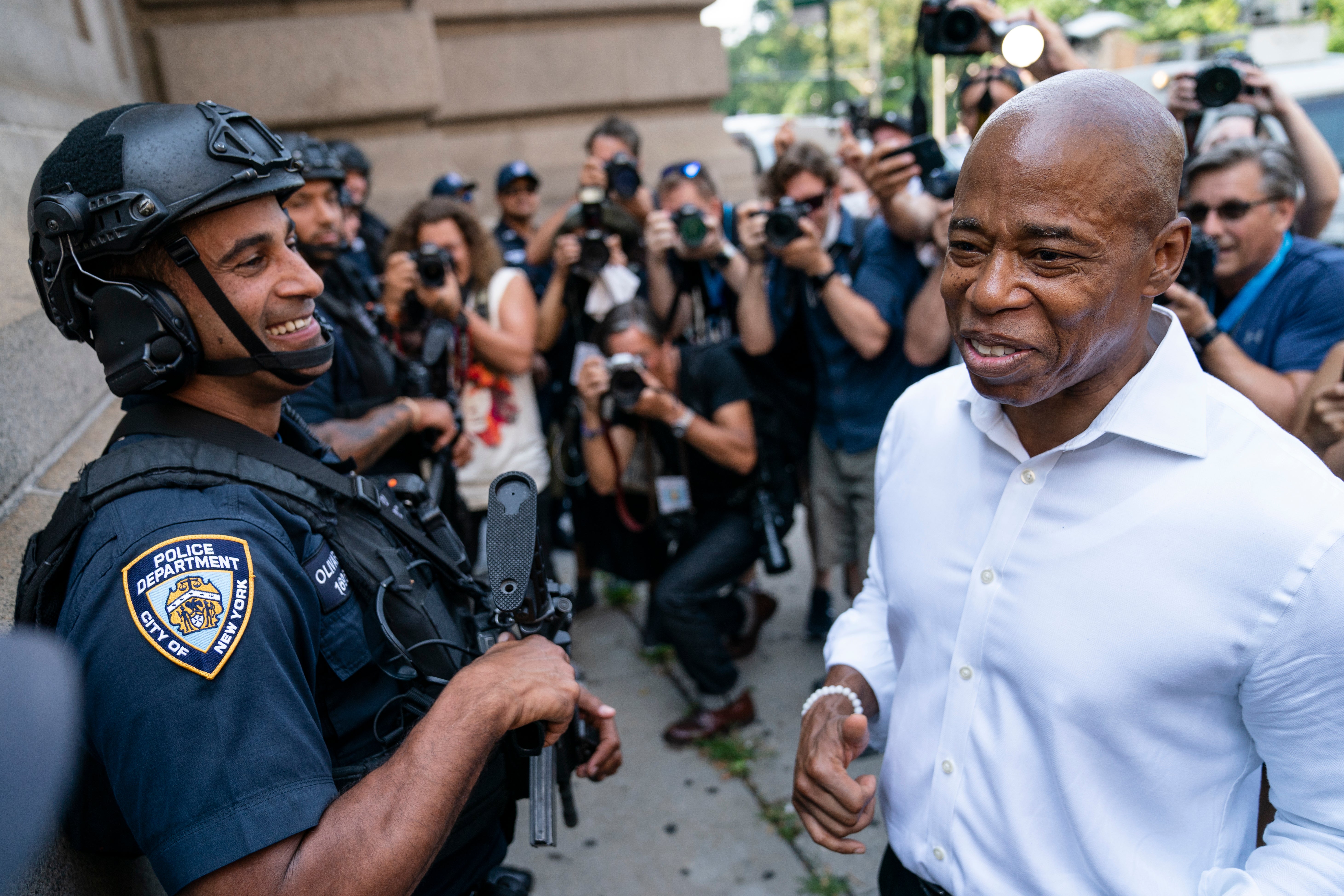The Independent's journalism is supported by our readers. When you purchase through links on our site, we may earn commission.
Eric Adams’ win in New York doesn’t mean what you think it means
There’s been a lot of talk about how this is the end of ‘defund the police’ and influence from progressive politicians like AOC. But that’s less than half the story


At long last, New York City’s hotly contested primary election is over and it looks like Brooklyn borough president Eric Adams will be the city’s next mayor. The race has been more closely watched than mayoral races for most major cities, as it is supposed to provide some insight into where the Democratic Party stands nationally and how DNC strategists should operate going forward. Adams himself has stated that he is the new face of the Democratic Party.
But the truth is that any sweeping generalizations drawn from the outcome of this race should be taken with a heaping pile of salt. It is unwise in the first place to draw broad conclusions about the national landscape based on one election in one city, and a very unusual election at that. The newness of ranked-choice voting, the racially and economically diverse population of the five boroughs, and Adams’ own deep roots to the famously back-scratchy New York City political world add context and layers that complicate any large takeaways.
That Adams, a moderate candidate who ran on a pro-police platform, beat his closest contenders — progressive Maya Wiley and experienced Kathryn Garcia — does not necessarily mean that the Democratic Party as a whole is a center-left party and it is not a searing indictment on “Defund the Police” messaging. Adams beat Garcia by less than a percentage point, and Garcia only advanced to the final round ahead of Wiley by a few hundred votes. And it is by no means certain that, had Wiley gone on to the final round instead of Garcia, Adams still would have won. Additionally, taken together, Wiley and Garcia earned a greater percentage of the vote than Adams, which would indicate that the majority of New Yorkers would have preferred a more progressive candidate than a moderate one.
To read Adams’ win as a win for centrist politics generally also takes the race entirely out of political and strategic context. Adams didn’t face a strong progressive opposition at least in part because the left flank took too long to fully coalesce around one candidate. While Scott Stringer was an early favorite among the progressives, earning the endorsements of Rep. Jamaal Bowman and the Working Families Party, accusations of sexual assault effectively torpedoed his campaign as those endorsements were withdrawn. Similarly with Dianne Morales, a far-left candidate who ran as a strong progressive and full-throated advocate for defunding the police. The Morales campaign fell spectacularly apart after accusations of union-busting within her own campaign staff.
The left wing of the party didn’t coalesce around Maya Wiley until she got the coveted Alexandria Ocasio-Cortez endorsement just days before early voting began. Though Wiley, at this point, seemed somewhat of a last-resort candidate for the progressives, her campaign saw an immediate and significant boost that propelled her to the top of the pack. Had the left given Wiley strong support earlier in the campaign, she may have fared a lot better. It would seem, in that case, that New York City Democrats could very well lean left but just have a dearth of strong leftist candidates.
The contentious “Defund the Police” messaging, a slogan popularized following the George Floyd protests in 2020, has been referred to as a strategic misstep. Certainly, Adams’ win appeared to support that. One poll did indicate that a rise in crime was the most important issue for New Yorkers in 2021, but respondents also ranked issues such as gun control, racial injustice, and police reform highly. The poll also did not ask voters what measures they would support to stop violent crime in the city. It is possible to both be concerned with a rise in crime and support a decrease in funding for the police department — a duality that, of all the candidates, Wiley best represented.
And, of course, New York City Democrats are not the same as New York state Democrats, who voted for India B. Walton, a Black democratic socialist, over a four-term incumbent in Buffalo. Progressives also made sweeping gains in down-ballot races in all five boroughs. And let us not forget the enduring popularity of AOC, who could reasonably pose a threat to Majority Leader Chuck Schumer’s Senate seat.
New York City has never been a reliable bellwether for national politics, and it is not at all clear that this race should serve as a lesson to Democrats. The real mistake would be in taking it as such.

Join our commenting forum
Join thought-provoking conversations, follow other Independent readers and see their replies